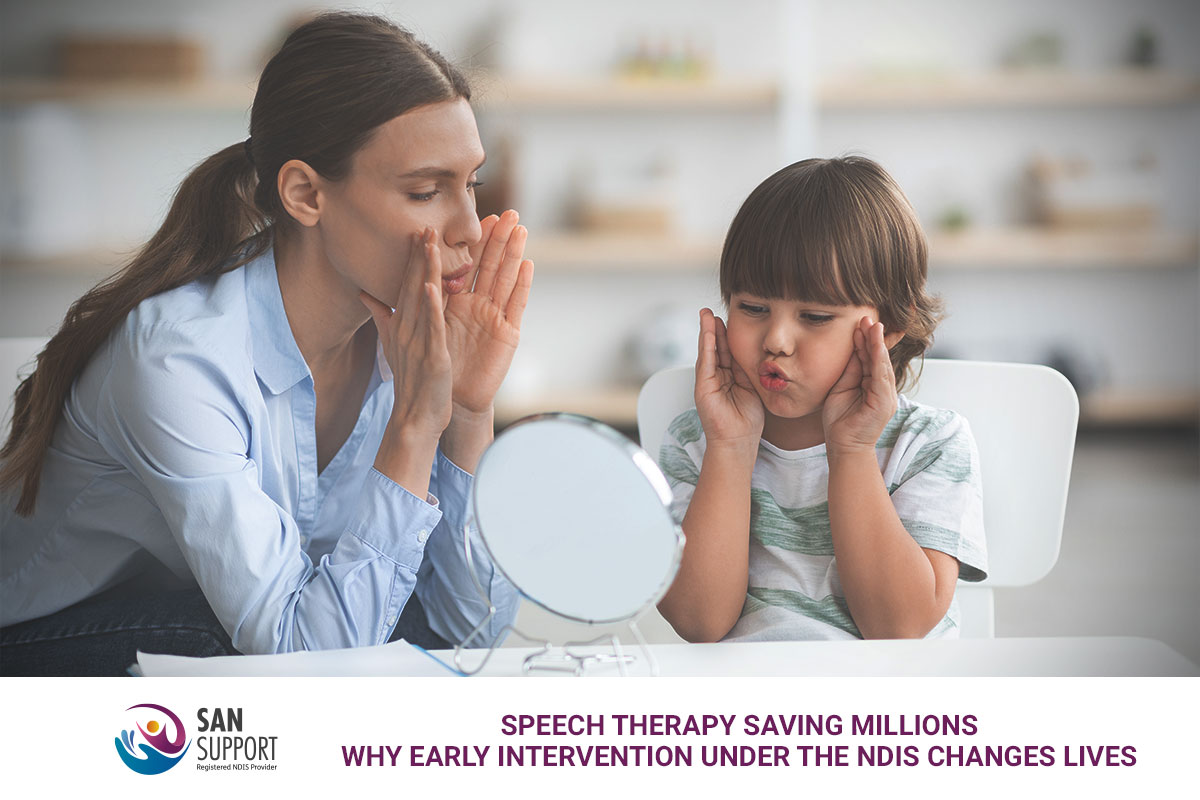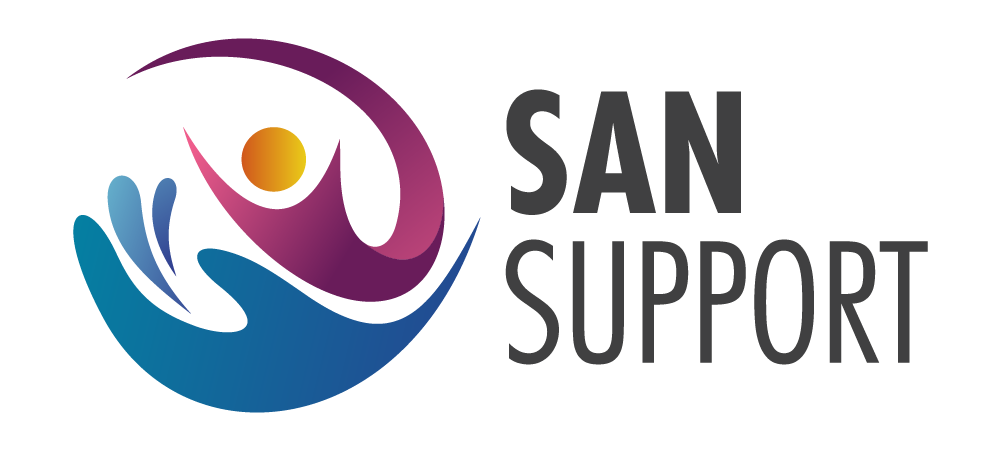
Speech therapy is often overlooked or misunderstood in the broader conversation about disability support. Many Australians assume it only helps with pronunciation or fluency. In reality, speech pathology is one of the most powerful, cost-effective tools available to NDIS participants. It supports not only communication, but also swallowing safety, social development, cognitive function, emotional regulation and behavioural outcomes.
Speech therapy can reduce the need for costly interventions, prevent medical emergencies and significantly lower the demand for full-time support staff. In fact, across Australia’s health and disability systems, this therapy helps save millions annually while improving participant independence and wellbeing.
The Expanding Scope of Speech Therapy in Disability Support
A speech pathologist does much more than help people speak. Their scope includes:
- Speech production (clarity, fluency, articulation)
- Language skills (understanding and expressing ideas)
- Social communication (non-verbal cues, turn-taking, emotions)
- Cognitive-communication (attention, memory, problem-solving)
- Swallowing and feeding safety (dysphagia management)
- AAC (Augmentative and Alternative Communication) solutions
- Literacy and comprehension support in both children and adults
Speech therapy also addresses issues associated with conditions such as:
- Autism Spectrum Disorder (ASD)
- Cerebral palsy
- Down syndrome
- Acquired brain injury (ABI)
- Intellectual disability
- Stroke and neurological conditions
- Dementia and age-related decline
This broad clinical coverage makes speech pathology a cornerstone of both paediatric and adult disability support services in Australia.
The Financial Case: How Speech Therapy Reduces Long-Term Costs
1. Preventing High-Cost Medical Events
Swallowing difficulties (dysphagia) are common among people with disability. Without intervention, these can result in:
- Aspiration pneumonia (food or liquid entering the lungs)
- Choking incidents
- Severe dehydration and malnutrition
- Frequent hospitalisation
A 2021 study by the Australian Commission on Safety and Quality in Health Care found that preventable complications like aspiration pneumonia cost the system over $20,000 per case.
Speech pathologists mitigate these risks by:
- Conducting swallowing assessments
- Recommending food and drink texture modifications
- Teaching safe feeding strategies to carers and support workers
Through this, they significantly reduce emergency incidents and the associated financial and emotional toll.
2. Decreasing Reliance on Behavioural and High-Intensity Supports
Many behavioural challenges stem from inability to communicate needs. This often leads to:
- Emotional distress
- Aggression or withdrawal
- Increased need for behavioural therapists or 1:1 staffing
Speech therapy helps participants express their needs and frustrations constructively, thereby:
- Reducing behavioural outbursts
- Lowering reliance on costly supports
- Improving relationships at home, school and in the community
NDIS funding for Positive Behaviour Support (PBS) often complements speech therapy, but proactive communication development can prevent the need for intensive behavioural intervention altogether.
3. Supporting Long-Term Independence and Reducing Ongoing Support Hours
One of the most significant benefits of speech therapy is that it enables participants to manage life more independently. This includes:
- Making personal choices without prompting
- Navigating transport or community outings with less supervision
- Participating in school or work settings with better confidence
- Advocating for personal needs in healthcare, education and home environments
This reduction in dependence on others allows for a scalable reduction in funded support hours, especially for core and community participation supports. The long-term savings are substantial.
NDIS Funding: What You Need to Know
Speech therapy services are typically covered under the following NDIS support categories:
- Capacity Building – Improved Daily Living: For skill development and communication
- Core Supports – Assistance with Daily Life: When therapy supports essential tasks such as eating and drinking
- Early Childhood Early Intervention (ECEI): For children under 7 with developmental delay
At SAN Support, our NDIS support coordination team helps participants:
- Understand which therapy options are available under their plan
- Find and book appointments with registered and experienced speech pathologists
- Integrate speech therapy with other supports like occupational therapy or behavioural therapy
- Track progress and align supports with long-term NDIS goals
The Broader Benefits of Investing in Speech Pathology
Beyond cost savings, speech therapy delivers key social and emotional benefits:
- Better quality of life: Participants feel more heard, valued and understood
- Improved mental health: Reduced frustration, anxiety and isolation
- Stronger relationships: Improved ability to engage with peers, family and support staff
- Increased participation: Empowerment to join community events, school and employment opportunities
These improvements align directly with the NDIS’ mission to help participants achieve their goals and live an ordinary life.
How SAN Support Enhances Access to Speech Therapy
As a leading NDIS registered provider in Australia, SAN Support simplifies access to essential therapies by:
- Coordinating allied health appointments
- Assisting with NDIS reviews and therapy reports
- Matching participants with professionals experienced in disability-specific communication needs
We work across areas to ensure every NDIS participant has access to the right speech therapy at the right time.
Conclusion: Why Speech Therapy is a Smart Investment
Speech therapy is a critical but often underutilised tool in disability support. It empowers people with disability to communicate, eat safely, self-advocate and live more independently. Just as importantly, it helps avoid preventable costs saving millions for families, providers and the NDIS system as a whole.
At SAN Support, we believe that early intervention is the key to better outcomes. That’s why we prioritise high-quality, participant-focused therapy coordination, ensuring each person has the opportunity to reach their full potential. Speech therapy is not just about words. It is about safety, freedom, dignity and delivering real value to those who need it most.
